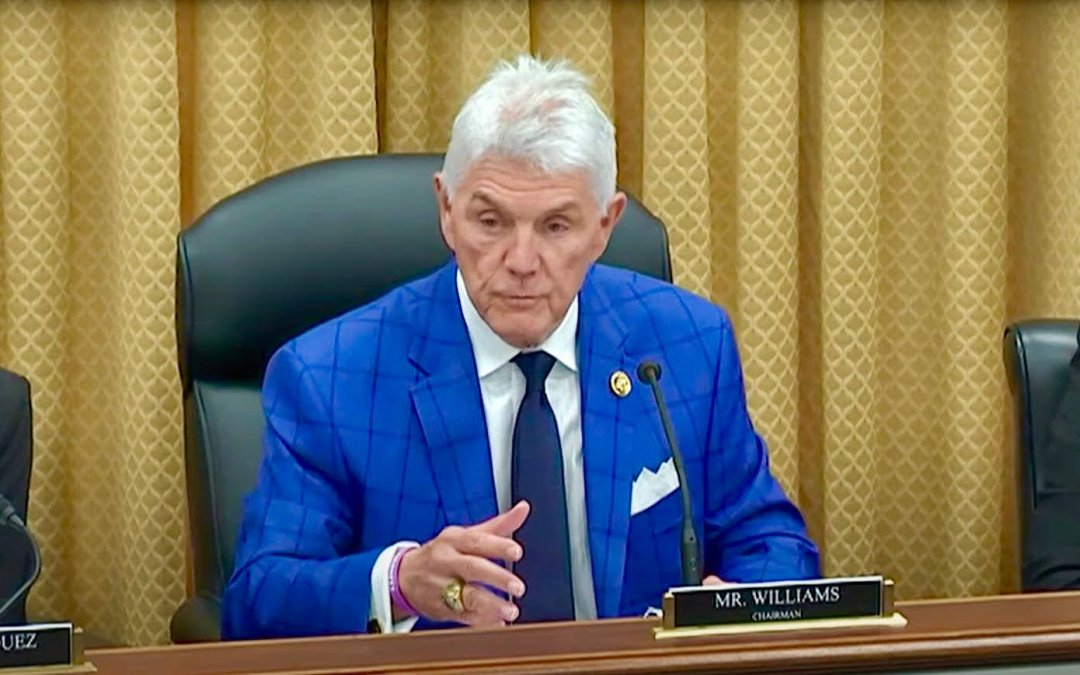WASHINGTON — Key provisions of the Tax Cuts and Jobs Act (TCJA) are set to expire after the end of 2025, Rep. Roger Williams, R-Texas, chairman of the House Committee on Small Business said in a Wednesday hearing. He added that the future of American small business is uncertain as they wait for Senate action to pass the bipartisan bill which was proposed in January.
Congress passed the TCJA in 2017. According to Williams, it included the most significant changes in the tax code in decades. He said those changes helped business revenue go up and generated the highest single year increase in government revenue since 1977. The TCJA also contributed to improving household finances, with median household income rising by $5,000 in the two years post-enactment.
Several of its provisions will automatically expire if Congress does not act to extend or amend them after a certain period of time.
Williams said this will potentially hinder business operations as America’s job creators continue to face harsh economic hardships which have significantly impacted the nation’s small businesses.
“We must ensure that the tax code works for business owners, not against them,” he said.
Raymond Huff, a small business owner, said that he is concerned with the potential expiration of tax provision 199A.
“Many small businesses, including mine, need the 199A tax provision to stick around so we can get healthy again,” he said.
He added that the prospect of losing the benefits of this tax law is troubling.
“If my business is faced with a significant tax increase at the end of next year, it will set my business back in a way I can’t afford, or plan for a 20% or higher increase which will require me to slow or cancel my store openings and hiring plans in the future,” he said.
Rep. Aaron Bean, R-Fla., said the provisions of this bill have a track record of increasing wages, providing more job opportunities and helping American businesses become more competitive, more productive, and more innovative.
He added that this in turn generates a tremendous economic boom in communities.
“I believe the tax relief for American families and workers will provide many relief opportunities,” he said.
Rep. Morgan McGarvey, D-Ky., said small businesses in the tax code must be simple, fair and must promote job creation in America. He added that America needs a tax code that is accessible to every American and everyone needs to pay their fair share.
“It is not viable and fair that the top 10% earners are oftentimes taxed at far less than teachers, firefighters, and people below,” he said.
Huff added that without the protection of tax provision 199A, larger competitors would gain an unfair advantage, as they would benefit from a better effective tax rate.
“This imbalance in the marketplace goes against the principles of fair competition and undermines the role of small businesses as the backbone of the U.S. economy,” he said.
Walter Rowen, president of Susquehanna Glass Company in Columbia, Pennsylvania and co-chair of America Small Business Future, said the failure to support small business growth represents a missed opportunity to create jobs, raise wages, and empower entrepreneurs to contribute to the vitality of their communities.
He said extending the TCGA provisions beyond 2025 would lock in a tax system that does not invest in small business growth or resilience.
“We need to take this opportunity to create and pass tax reform that supports small business success, closes loopholes and ensures everybody pays the same or fair tax rates,” he said.
Huff said members of Congress need to recognize the urgency of this pending tax increase and take action to allow for proper business planning.
“The business community needs certainty, especially small businesses like mine. Waiting to resolve this issue would certainly not be as beneficial as extending and making those tax provisions permanent now,” he said.


